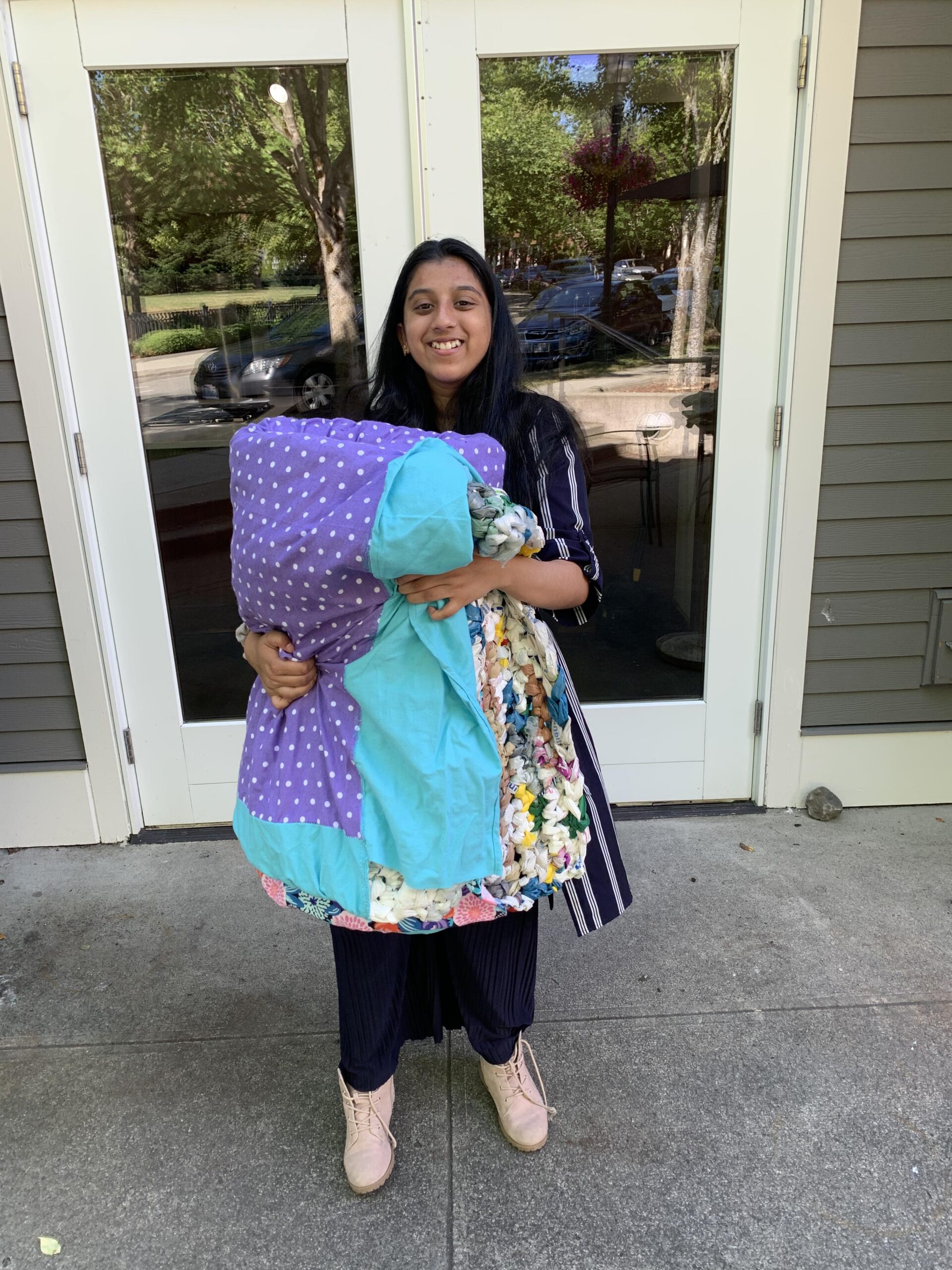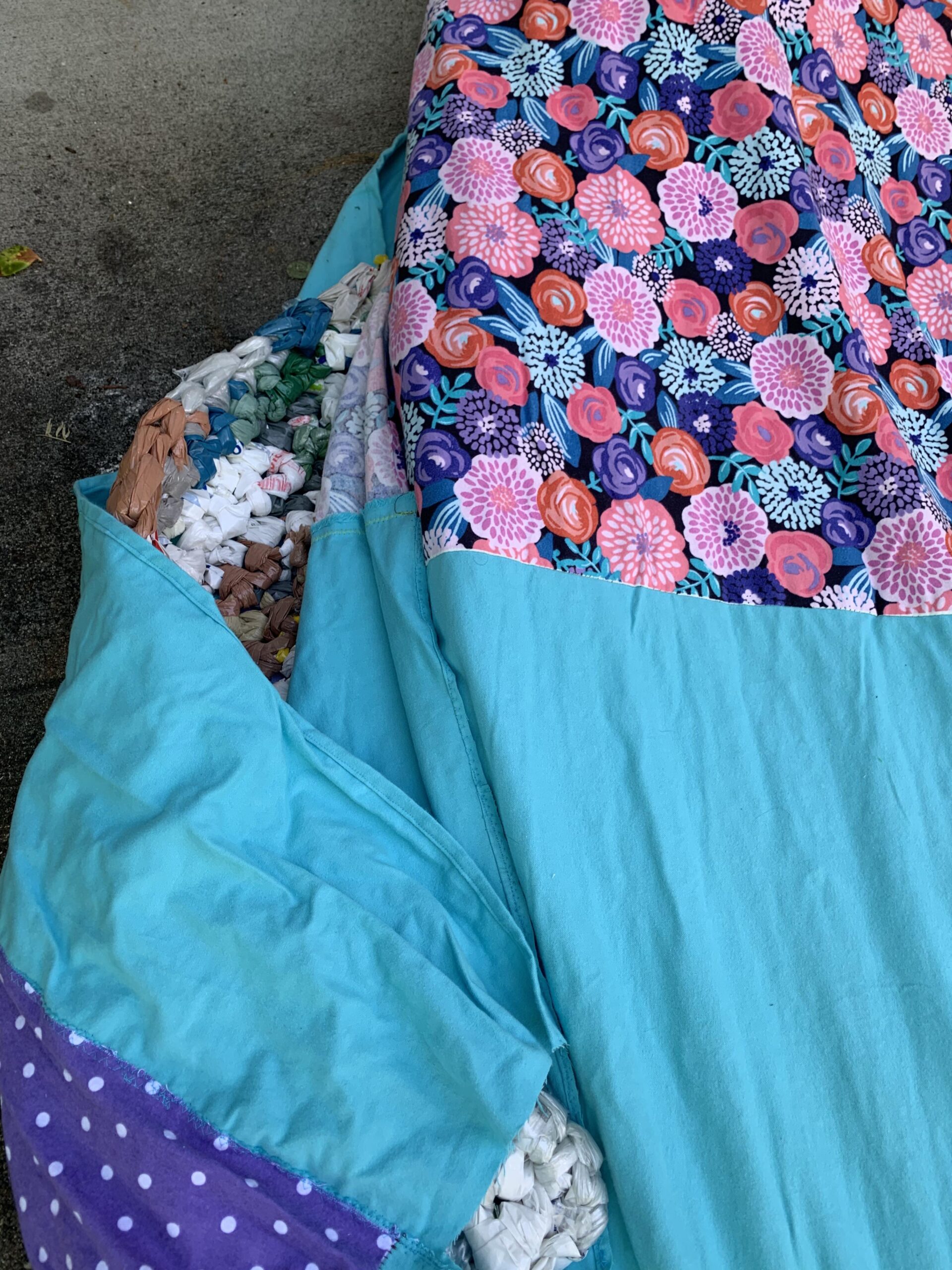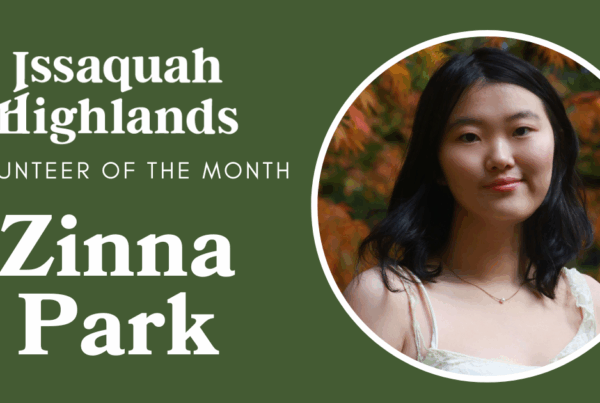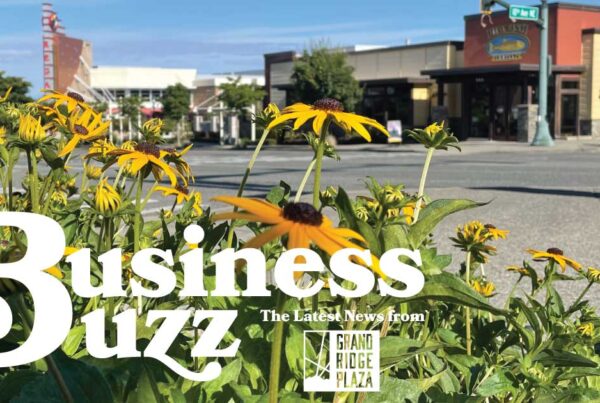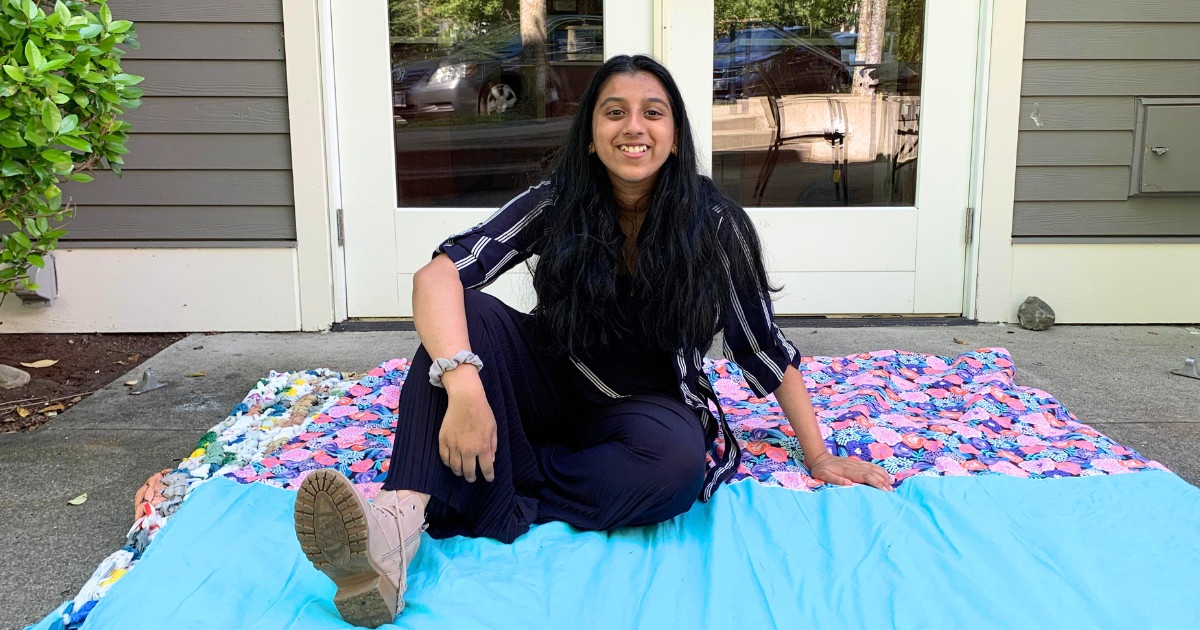
Central Park resident Arya Krishnamoorthy, who is a senior at Issaquah High School, hopes to bring people together through crafting. As part of her nonprofit Kaarunya Foundation, which means “compassion” in Hindi, she cuts and crochets plastic bags to make sleeping mats for houseless individuals.
She has made “five mats so far, reached thousands of people with online and in-person demonstrations, and prevented six tons of carbon dioxide from entering the atmosphere,” she says. She hopes to finish 5-10 more mats by winter 2023.
“I spend time crafting to help other people,” Arya says. “Spending your own time and effort for somebody strengthens your connections with those you are trying to help.”
After seeing unhoused people sleeping on the street in the middle of winter, Arya wanted to help provide more comfortable and warmer conditions for them. She was searching for an efficient way to create thick mats when she found the idea to reuse plastic bags.
She learned to make sleeping mats by cutting and crocheting strips of single-use plastic bags. It takes roughly 700 bags to create one mat measuring 6 feet by 4 feet, she explained. The finished product is lightweight and includes a portable strap for easy transport. Plus, it gives a new life to plastic bags that would otherwise go into landfills.
Arya decided to use fabric to cover the recycled bags, much like a pillowcase, and provide a way to effectively wash the mats.
“The mats are adaptable to different people,” she added, referring to the color, pattern and size of them.
In an effort to collect fabric and plastic bags, Arya has hosted several donation drives at school and around the community, including her local Hindu temple. She also partnered with Ridwell, a plastic recycling company, to find more bags. The company filled five large trash bags with plastic, she noted.
She donated her first sleeping mat to Angeline’s Day Center, a shelter for women experiencing homelessness, and they asked her to make more.
To create mats at a faster rate, Arya connected with students at the Issaquah Library as well as The Garage, a free drop-in space for high school teens. She taught volunteers how to cut and tie the plastic to make “plarn,” also known as plastic yarn.
Additionally, she collaborated with seniors at Issaquah Senior Center who were interested in helping to crochet. Arya is especially thankful for Ginger and Mary, who taught her useful skills for crocheting and finished three mats by themselves.
As part of a bigger conversation about climate change, she has hosted demonstrations to educate students at Cedar Trails Elementary School as well as local Sunday schools on the impacts of plastic on the environment.
“I held fabric drives at the places I spoke at, in order to empower the audience to directly contribute to the cause, instead of learning about it passively,” she added.
Her passion encouraged Arya to compete at Family, Career and Community Leaders of America (FCCLA) as well as DECA.
Arya is currently trying to find more locations and volunteers that are interested in helping with the project. If you would like to learn more about the process, or if you are interested in starting this in your neighborhood, contact Arya at goodnightplastic@gmail.com.
